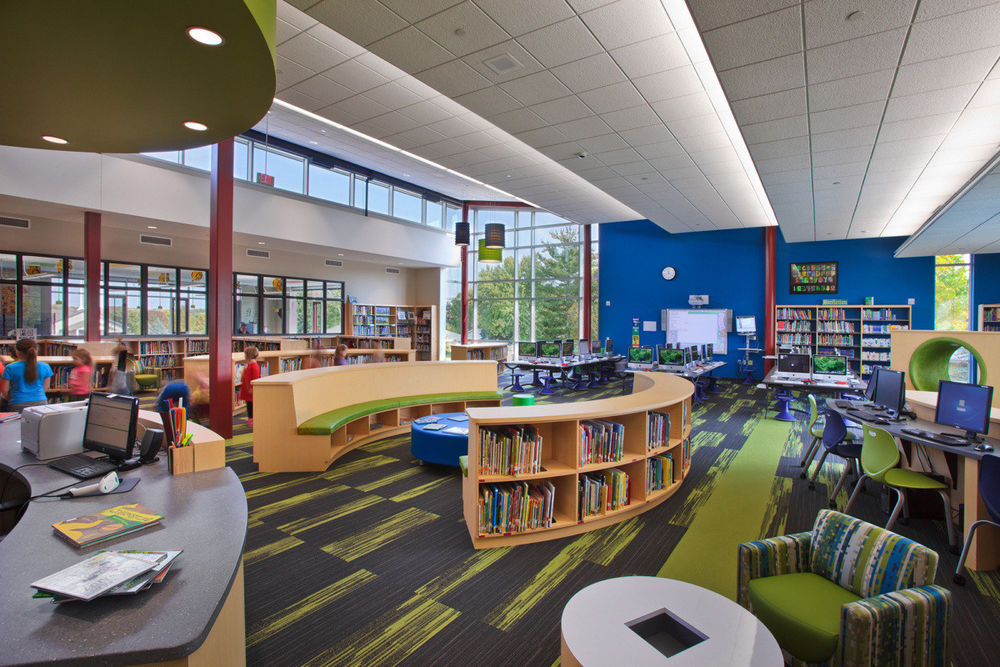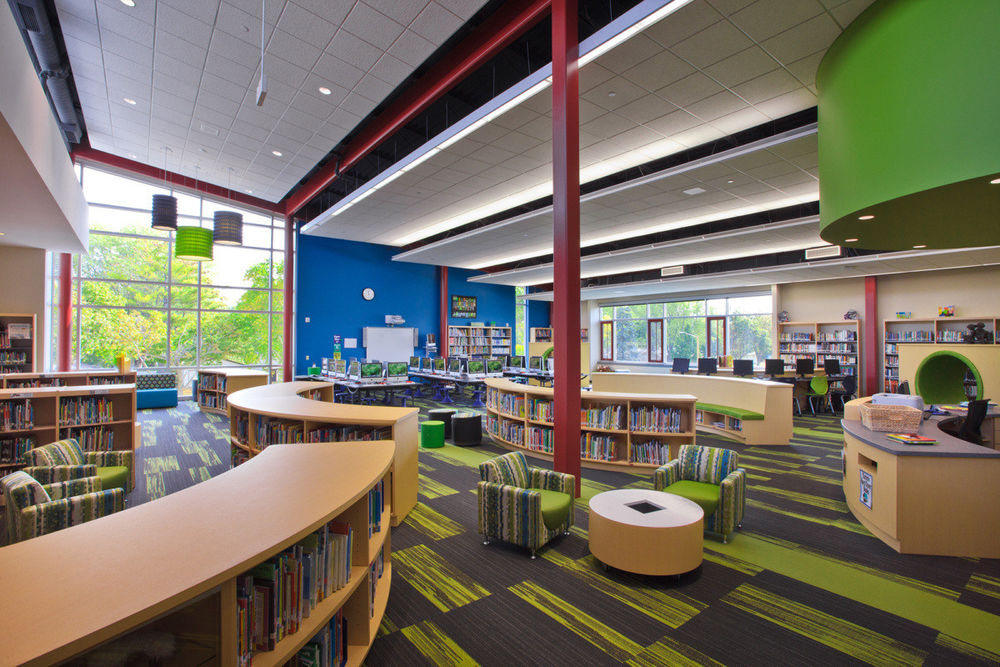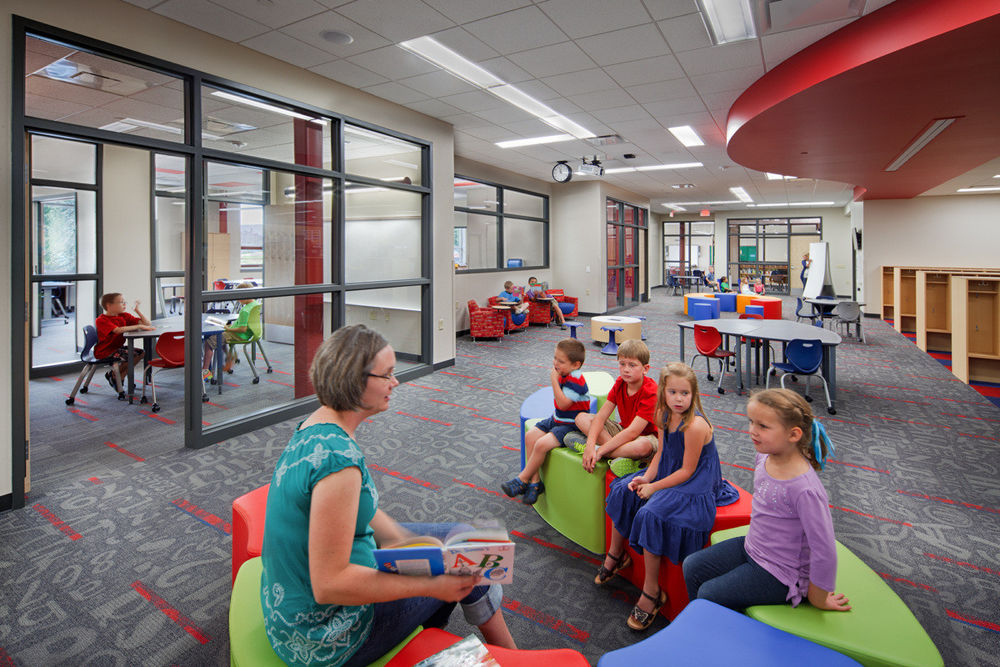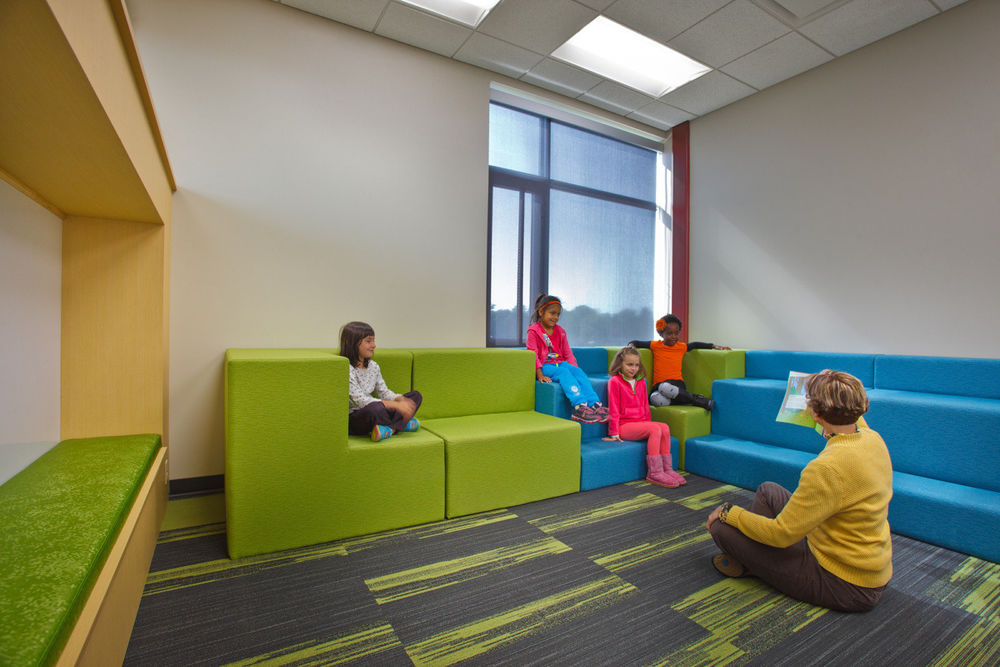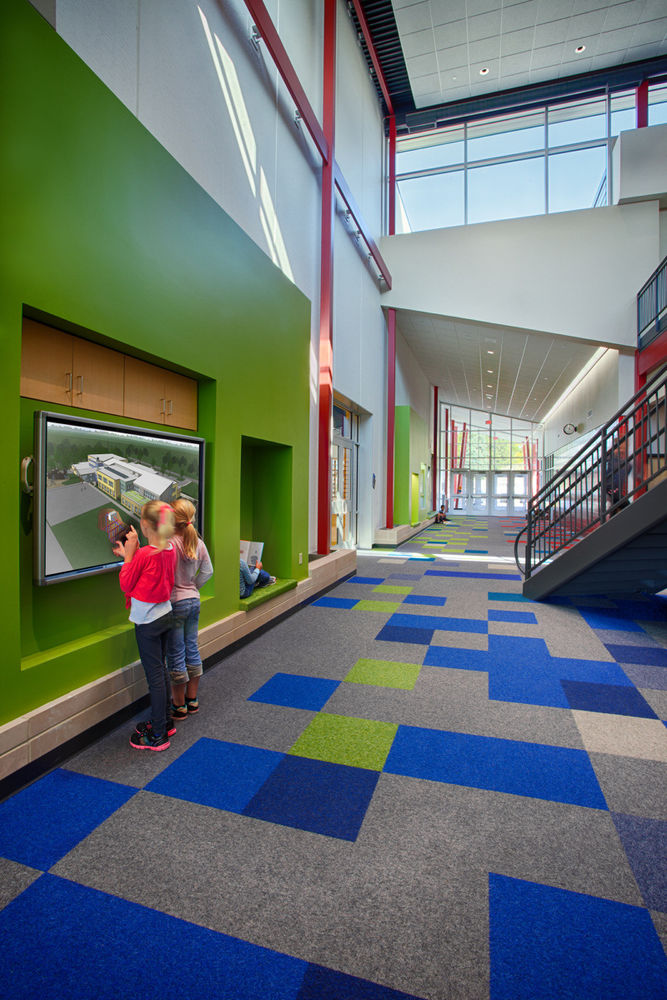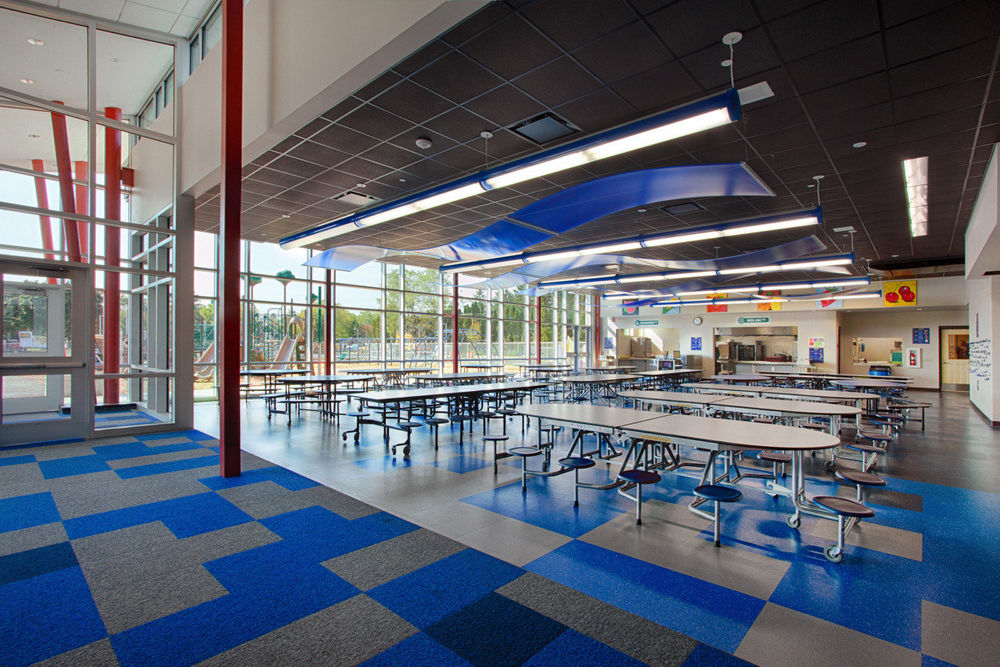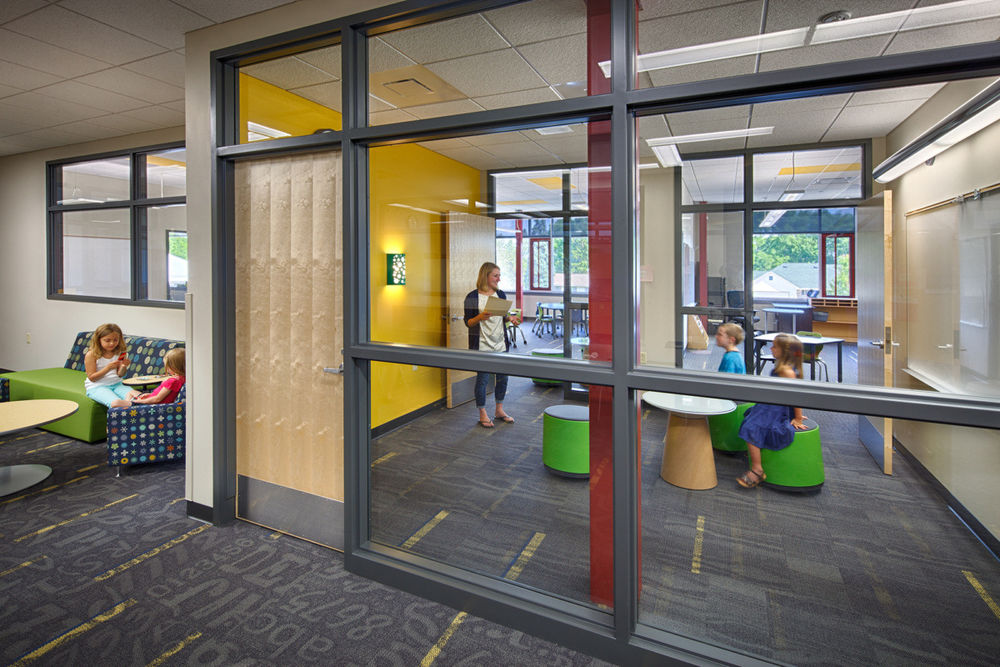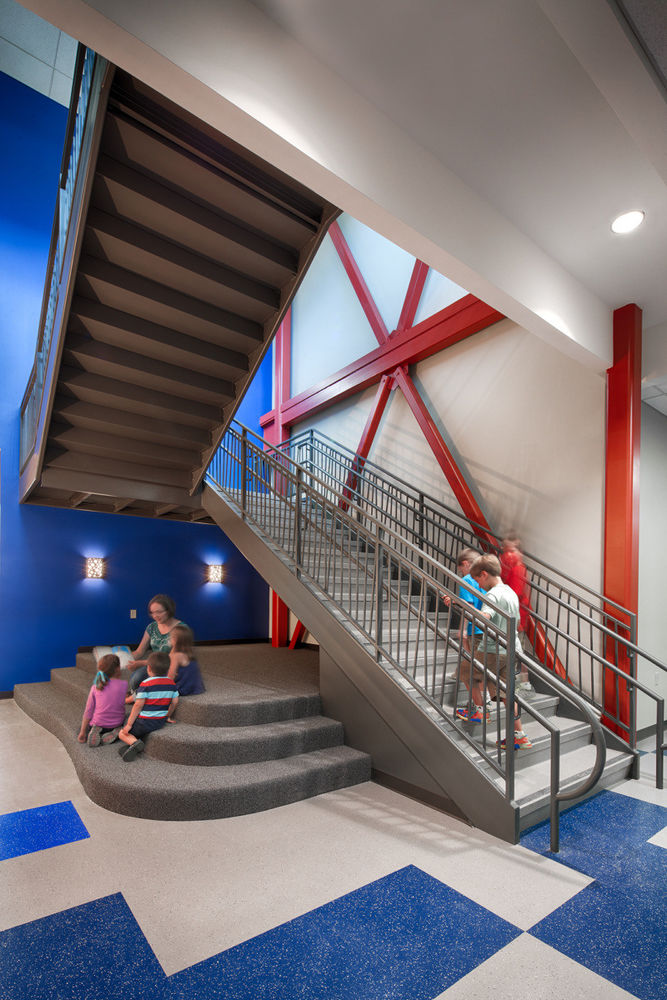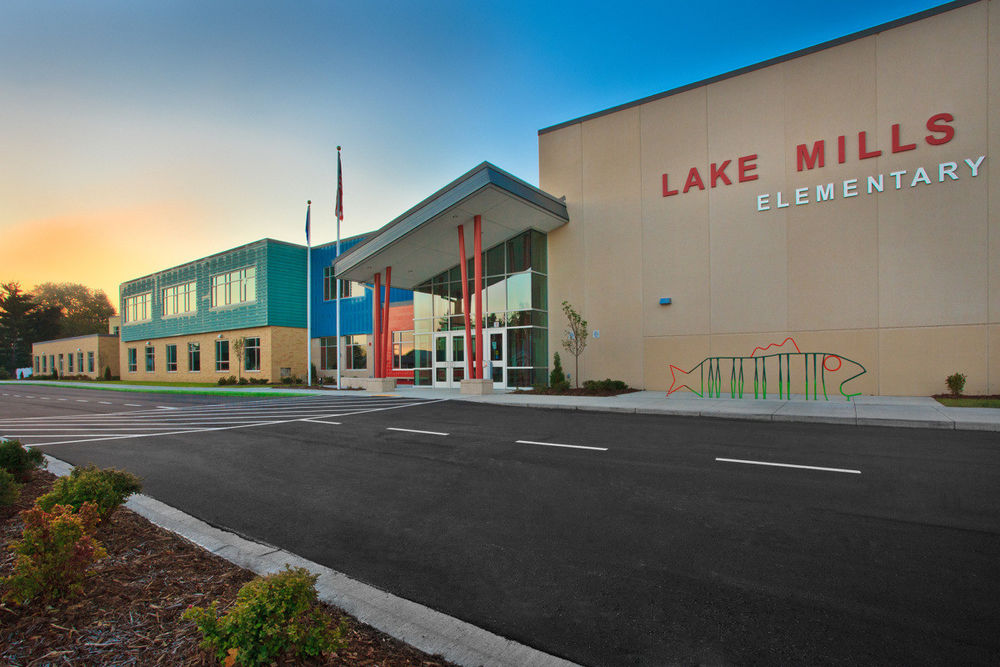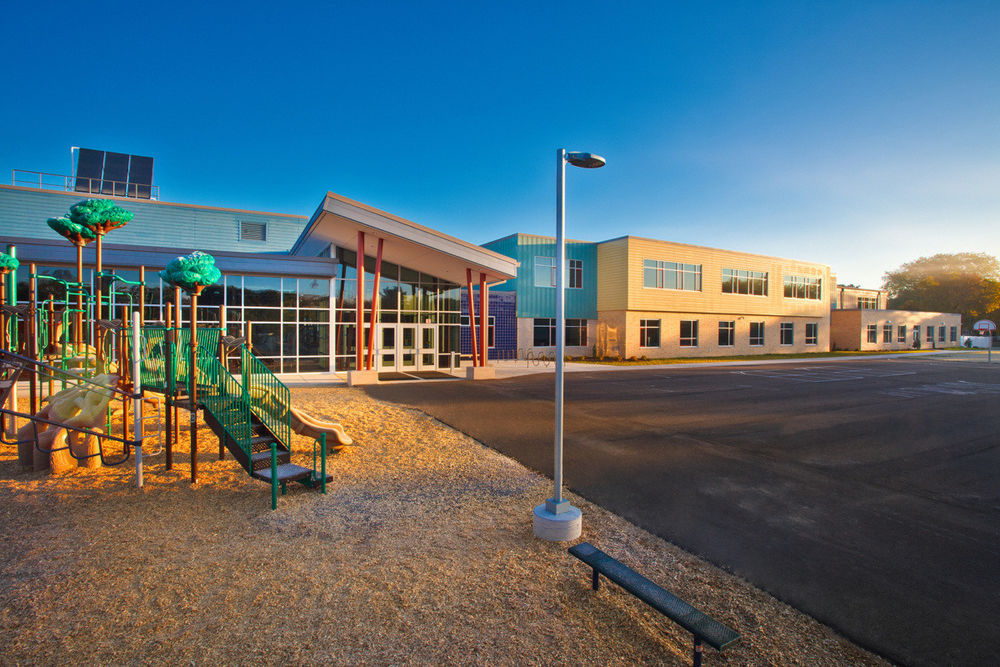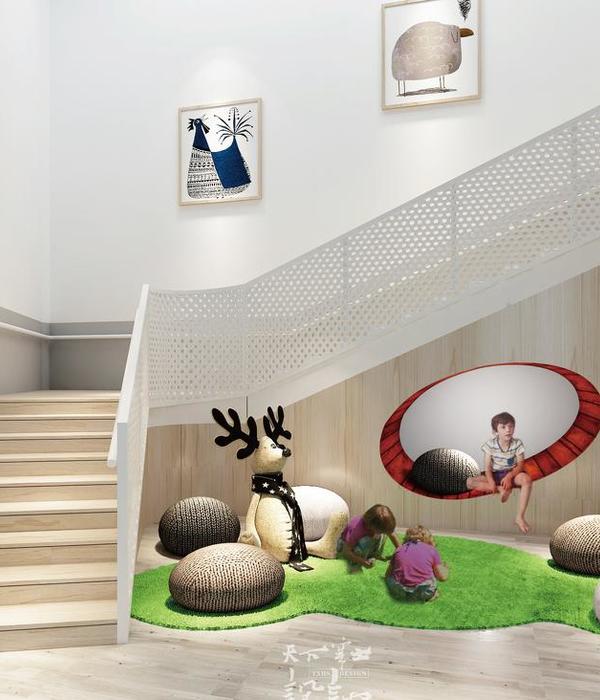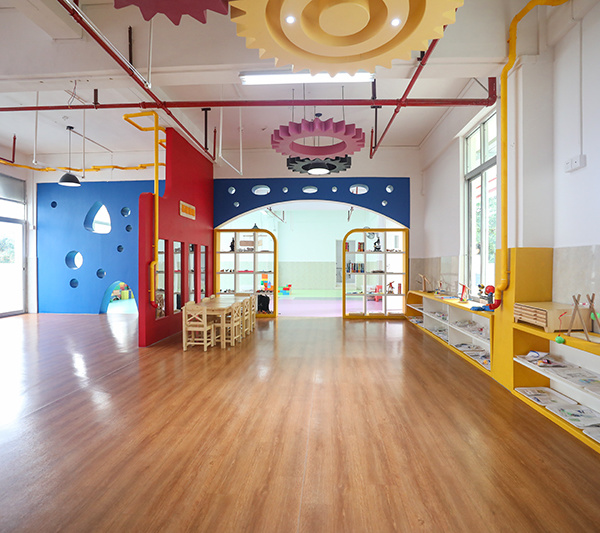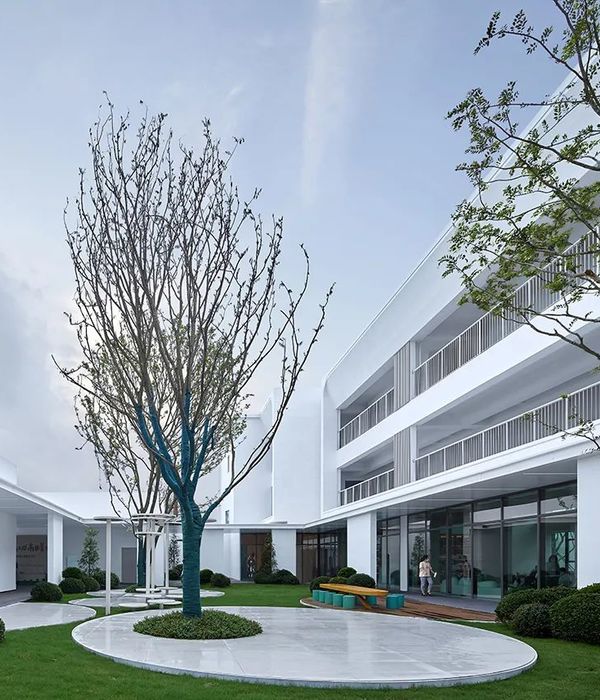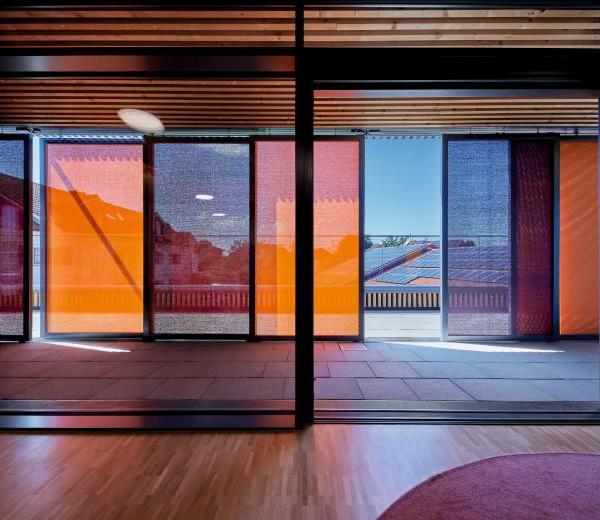Wisconsin 幼儿园 EUA 设计案例,灵动空间促进学习成长
Eppstein Uhen Architects (EUA) partnered with the Lake Mills School District to design the new Lake Mills Elementary School located in Lake Mills, Wisconsin.
To address aging and overcrowding, Eppstein Uhen Architects (EUA) assisted the Lake Mills Area School District (LMASD) in creating a new K-4 school that accommodates 600 students in a modern learning environment. A hands-on design process with teachers, administration and the community resulted in a learning neighborhood design that features transparency and flexibility and variety, with the ability to accommodate future community growth and evolving modes of teaching.
In this transformative school, learning is no longer restricted to the classroom but happens throughout the building. EUA strategically created small group educational opportunities in circulation paths and under stairwells with flexible and built-in furniture. Throughout the media center, cubbies and fun furniture provide children places to play, read, socialize and relax.
A major component in the space planning and design of the new school, the floor plan is versatile and agile, allowing for spaces with multiple uses to foster collaboration and creativity. Rather than traditional load-bearing block wall construction, this school uses steel frames and metal studs for easy future reconfiguration. Classrooms are flexible and include breakout spaces to help students learn, develop trust and foster peer-to-peer learning. The ample variety of spaces allows staff and students to remain engaged in the learning process while working in an assortment of group configurations. Break-out areas allow teachers to provide personalized instruction within the classroom, addressing the needs of all learners.
Mobility, versatility and ergonomics factored heavily into furniture selection, using pieces that encourage multiple methods of instruction and modes of learning. Tables and chairs on casters encourage movement for multiple methods of instruction. Backless stools with balance mechanisms allow children to wiggle out energy; height adjustable tables allow standing while learning.
Transparency and safety features allow students to move about the spaces freely with continuous supervision. Learning neighborhoods are light-filled, open and transparent, eliminating environments for bullying and disruptive behaviors. Additional measures include a seamless entry sequence for increased safety and a design allowing neighborhoods to be sectioned off in a lockdown scenario without sacrificing views between the core learning spaces.
To provide a connection to the outdoors and the surrounding landscape, large windows in the media center evoke an open, bright feel, tying students to the surrounding Aztalan State Park. A local artist was commissioned to create a nature-based mural using a tree as a symbolic element for education and sustainability — a metaphor for a child’s learning path, with roots representing the foundations and branches representing the continual cycle of growth and change.
The first K12 school to achieve LEED Platinum Certification in the United States, the school is a sustainable teaching tool, featuring interactive touch-screens to see the building operations and energy usage. High-quality glass reduces glare, gray roof membranes manage heat gain in summer and winter, operable windows regulate temperatures, solar hot water panels supplement traditional water heating and photovoltaic panels produce energy.
Since opening, administration and the visionary team continue to work with teachers to adapt teaching methods with an understanding of the potential the new variety of spaces offer.
Architect: Eppstein Uhen Architects (EUA) Contractor: Miron Construction Photographer: C&N Photography
12 Images | expand images for additional detail
